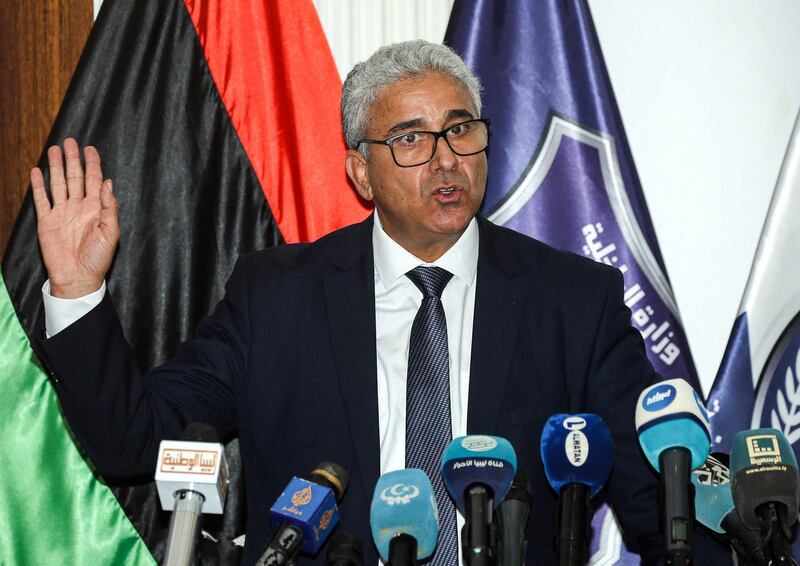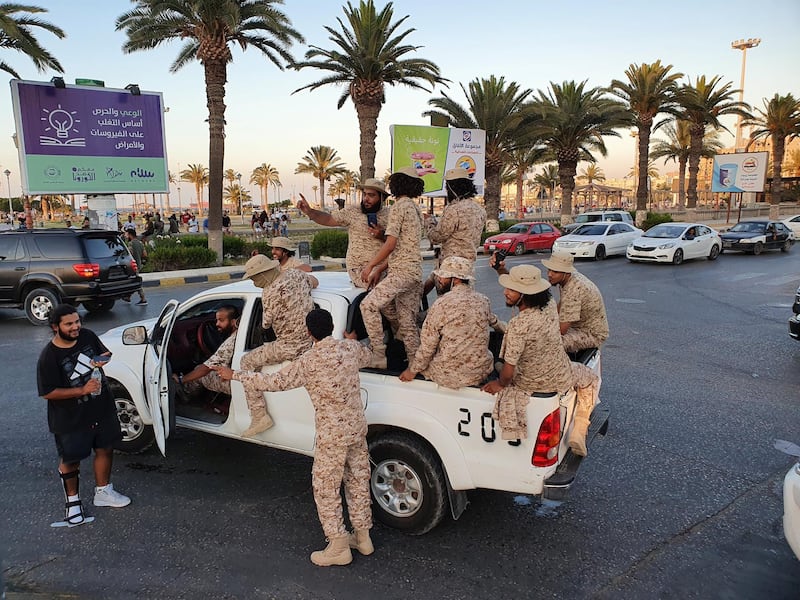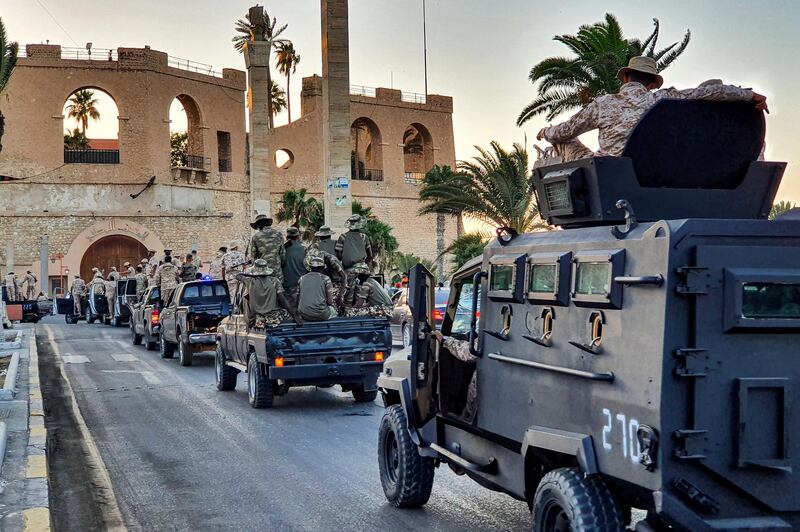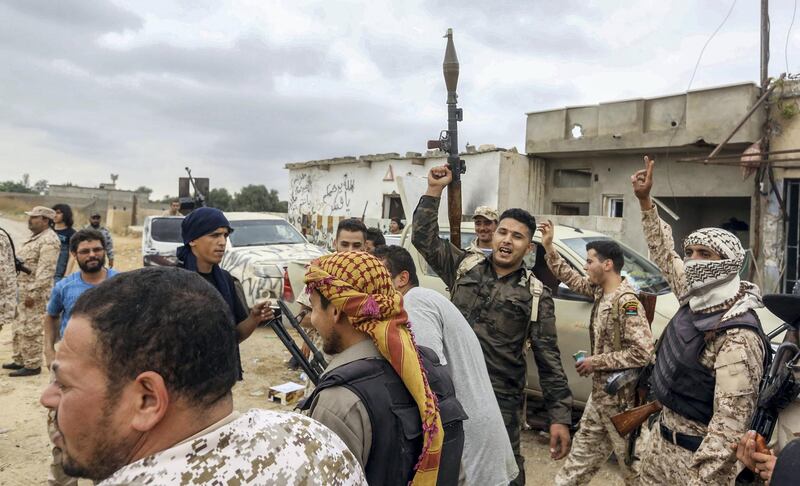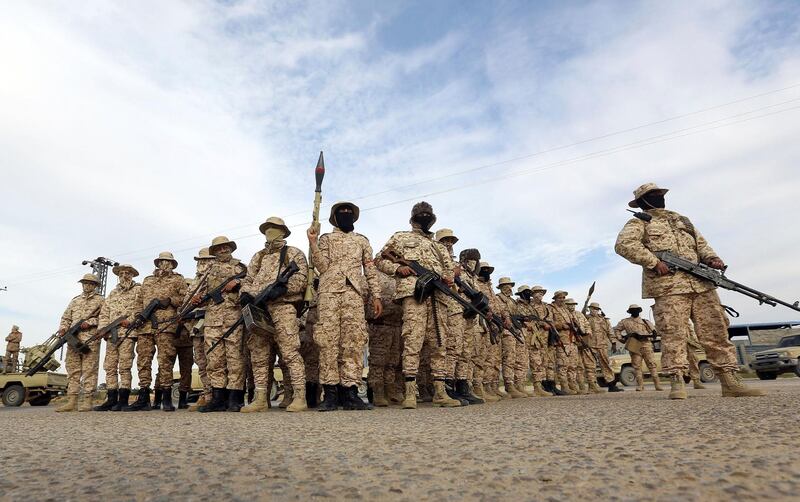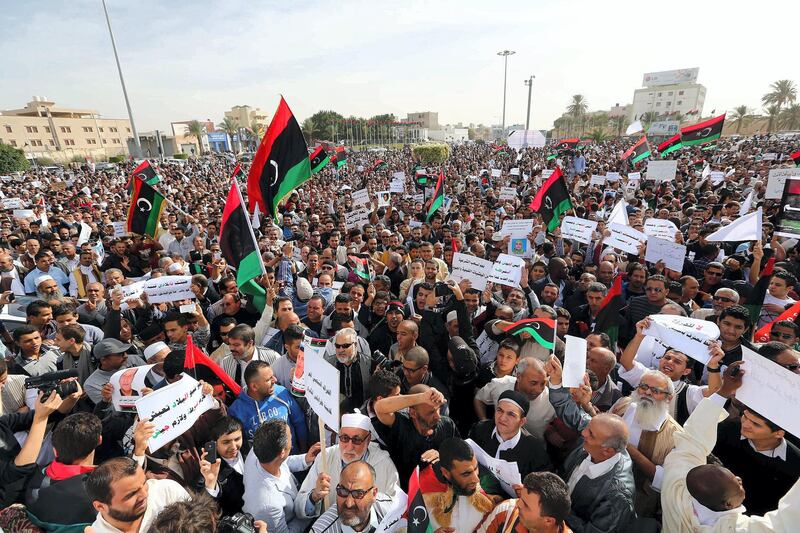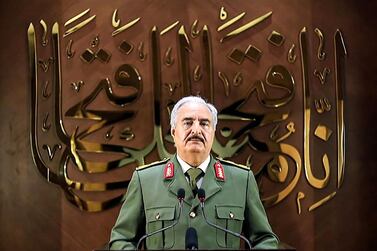A reported assassination attempt against a senior member of Libya’s Government of National Accord on Sunday increased tensions in the country before a crucial vote on a new unity government.
Fighting erupted around the motorcade of Interior Minister Fathi Bashagha as it sped along a highway in Janzour, a western suburb of Tripoli. The GNA is one of two rival governments in the politically fragmented country.
Mr Bashagha, who was unharmed in the battle, insisted it was an assassination attempt, telling the Reuters news agency that “it is not an incident that came by chance, but was well planned”.
Libyan interior minister describes assassination attempt
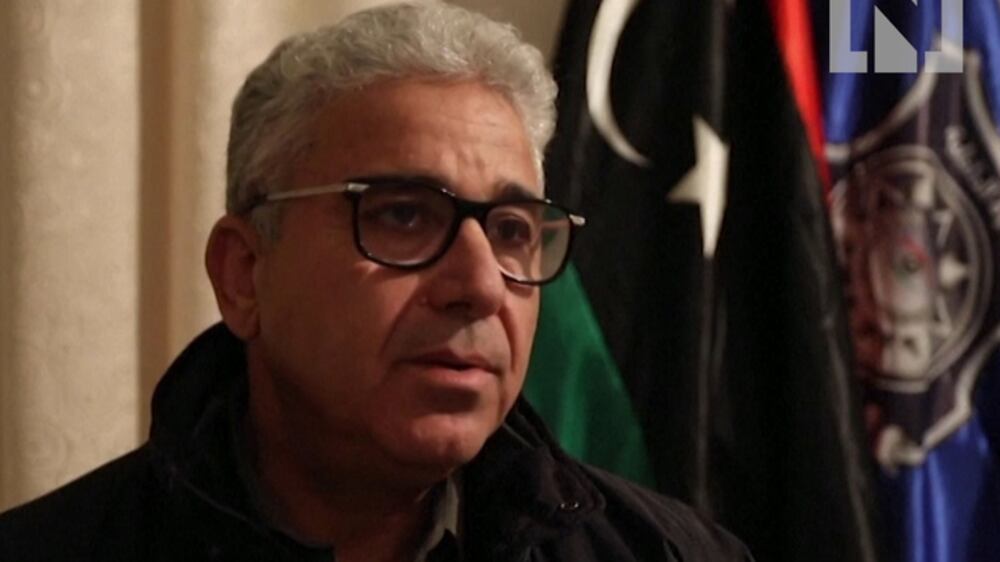
One of Mr Bashagha’s security guards was killed in the incident, along with one of the attackers, while two others were arrested at the scene.
Surveillance video footage of the incident from a nearby store shows what appears to be a collision between one of the jeeps in the minister’s fast-moving convoy and another vehicle.
The other vehicle then loses control and overturns. The grainy footage shows several armoured vehicles in the motorcade closing the highway. More details are expected in the coming days, with investigators due to interrogate those arrested.
Hours after the collision, US ambassador Richard Norland phoned Mr Bashagha to offer his support.
“Minister Bashagha’s focus on ending the influence of rogue militias has our full support,” Mr Norland wrote on the embassy's Twitter account.
الولايات المتحدة تدين الهجوم على وزير الداخلية باشاغا #ليبيا https://t.co/isWBV6TEGS
— U.S. Embassy - Libya (@USAEmbassyLibya) February 21, 2021
But late on Sunday, the Stabilisation Support Apparatus said its personnel were involved in the firefight.
The SSA was set up last year by the GNA's prime minister, Fayez Al Sarraj, to improve security in Tripoli.
It denied that there was an assassination attempt, claiming that Mr Bashagha’s units had opened fire on one of its vehicles.
Whatever the cause, the incident underlines the precarious security situation in the capital, where dozens of militias vie for control, engaging in occasional street skirmishes with one another.
A gun battle erupted on Sunday night in the city centre, although it is not known if this was connected to the motorcade incident.
While tensions are high in the capital, the conflict between GNA forces and the Libyan National Army has subsided after a ceasefire was signed in November.
Mr Bashagha is a high-profile political figure in western Libya, and he has used his time as interior minister to campaign against the militias, arguing that the capital’s security forces should come under government control.
Last summer, he was briefly fired from his post by Mr Al Sarraj after Interior Ministry forces were blamed for opening fire against protesters demonstrating against falling living conditions. A week later, a government inquiry cleared him of wrongdoing and he was reinstated.
More recently, Mr Bashagha made overtures of peace to Aguila Saleh, Speaker of the House of Representatives parliament in the east.
Mr Bashagha has been instrumental in supporting the ceasefire, which is held in place by a military commission based in Geneva and staffed by officials from both sides. He has also supported the formation of a Government of National Unity.
The GNU is the result of a complicated UN-facilitated process to break the impasse between the rival governments. Its goal is to supervise elections due in December.
The GNU was set up by the 75-strong Libyan Political Dialogue Forum, which meets in Geneva. The LPDF had been expected to choose Mr Bashagha and Mr Saleh to form the GNU's leadership.
Instead, it chose lesser-known political figures.
Parliament must vote by Friday on the Cabinet proposed by GNU Prime Minister Abdulhamid Dbeibeh.
If it votes against it, the Cabinet can still be approved by the LPDF. But without parliamentary backing, the GNU may struggle to impose its authority on Libya.
Mr Bashagha and Mr Saleh have publicly backed the GNU, and both men are seen by diplomats as crucial to its success.
Sunday’s gun battle made it clear that Tripoli’s security will be the GNU’s most urgent task.
